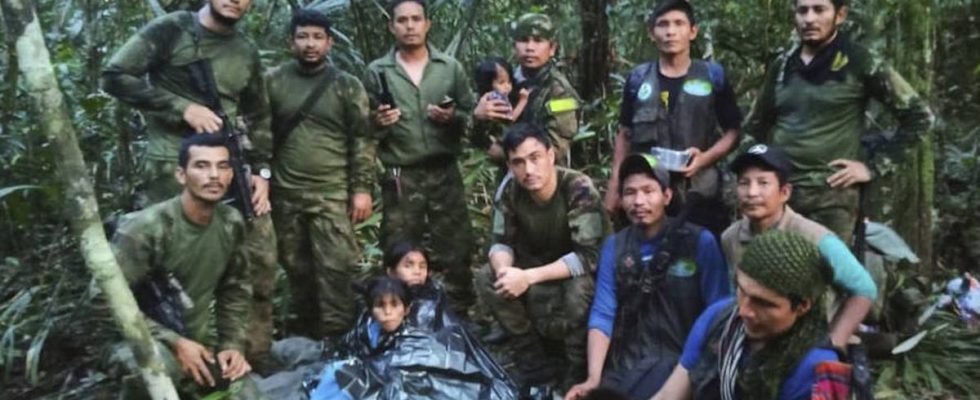Published on
Updated
Reading 2 mins.
Victims of a plane crash on May 1 in Colombia, 4 children were found alive on June 9 in the middle of the jungle by rescuers. How could they survive all this time? We talk about it with Dr. Jean-Louis Chabernaud, intensive care pediatrician.
It is a story of survival, both beautiful and tragic, that shook the whole world. Friday, June 9, 40 days after a crash in the middle of the Amazon rainforest that claimed the life of their mother and two other adults, 4 children aged 13, 9, 5 and 1 year old, were found alive. The end of a wandering that lasted more than a month. But how could they survive alone for so long in such a hostile environment?
Accustomed to living in nature
When the rescuers found the siblings, the children had, it seems, organized a semblance of a camp. A towel on the ground, near a stream, which they used to drink. For all food, the children seem to have fed on reserves of cassava flour found on the plane, some food dropped by the helicopters, but also roots, and fruits that they had identified. Their belonging to the indigenous tribe of Uitoto accustomed to living in the jungle undoubtedly saved them.
For Dr. Jean-louis Chabernaud pediatrician and resuscitator consulted by Doctissimo, the children, in their misfortune, were able to benefit from two great chances allowing them to survive:
“There were 4 of them and the one who risked his life the most was of course the one-year-old child. But finally at one year, we become less fragile on the dehydration side, which was the first risk. Luckily then, he was not so small. The second chance is this tall 13-year-old who was obviously very resourceful and found effective solutions for hydration and food. They were not little city dwellers and their knowledge of plants allowed them to recover food”.
The children would indeed only suffer from “some skin lesions and bites”. They are now hospitalized in Bogotá for two to three weeks, in order to follow a renutrition protocol.
Maintained psychological strength
Beyond the direct risks of undernutrition and dehydration, the doctor especially points to the psychological side which was undoubtedly also of great importance. In this ordeal, the childrenmust have been in fear of their lives”.
Several elements seem to have played a decisive role: the siblings in the first place, the fact of being carried by the oldest, “but sometimes the fact that there are smaller ones also helps, forces us to surpass ourselves, to invent games to stay alive” evokes the doctor. The deceased mother seems to have played a decisive role too: “IThey also had a wonderful mother, who understood that she couldn’t help them, but asked them not to give up.
Finally, we also know that the children heard the messages broadcast by the rescue helicopters, messages asking them to stay together.
For the doctor, it is therefore more on this psychological aspect that it will be necessary to be particularly vigilant with these children. The body, young, will undoubtedly recover quickly.
“They lived through a more than difficult ordeal, experienced the death of their mother directly, survived for weeks in a hostile environment… It seems to me that psychological work will be much more important than renutrition”.
